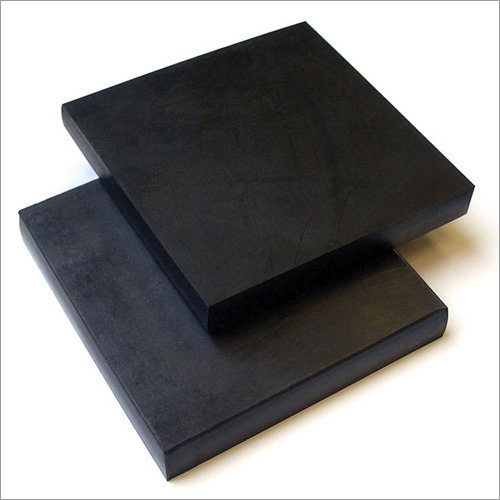About Rubber Bridge Bearing Pad
This Rubber Bridge Bearing Pad is an important material in bridge construction, which provides sliding surface for expansion accommodation, the elasticity of the bearing pad in high enough to suit the rotation to beam end and also the shear deformation is efficient to cope with the horizontal of the superstructure. Our offered bearing pad is made by using superior grade rubber and latest technologies under the direction of our expert keeping in mind the set quality norms. Our provided Rubber Bridge Bearing Pad is known for their unique features like absorb vibration and prevent sound transfer, excellent compressive strength and high strong.
Product Details
| Application | Bridge Construction |
| Material | Rubber |
| Thickness | 350 - 400 mm |
| Temperature Range | -45 Deg C to 120 Deg C |
Robust Performance and Versatile ApplicationThese rubber bridge bearing pads offer robust performance under heavy loads, resisting compression set up to 25% at 70C over 22 hours. Designed for customized applications, they suit diverse bridge construction requirements in India and meet international standards. Whether rectangular or circular, the smooth or anti-slip surface finish adapts to various installation environments for safety and stability.
Engineered for Longevity and ReliabilityWith laminated rubber-steel construction, these pads provide exceptional durability and resist environmental stressors. Their sealed integral design ensures stable operation without the need for lubrication. Utilizing high-grade materials, they maintain precision under challenging conditions and extend the service life of bridge structures by efficiently distributing loads and accommodating movements.
FAQs of Rubber Bridge Bearing Pad:
Q: How are rubber bridge bearing pads installed in bridge construction?
A: Rubber bridge bearing pads are installed by positioning them between the bridge superstructure and substructure, ensuring correct placement as per design specifications. Professional installation follows standard practices to ensure stability, load distribution, and effective movement accommodation.
Q: What benefits do laminated rubber-steel bridge bearing pads provide?
A: Laminated rubber-steel bridge bearing pads offer enhanced load-bearing capacity, durability, and resistance to deformation. They efficiently absorb vibrations and accommodate structural shifts, promoting longevity in bridge infrastructure.
Q: When should I select a rectangular versus a circular bearing pad?
A: The choice between rectangular and circular bearing pads depends on the bridge design and specific load requirements. Rectangular pads are typically used for straight beams or girders, while circular pads may suit column supports and rounded structures.
Q: Where are these bridge bearing pads manufactured and supplied?
A: These pads are manufactured, exported, imported, and supplied by certified providers across India, catering to both domestic and international projects with customization available for dimensions and load ratings.
Q: What is the process for customizing the size and thickness of a rubber bearing pad?
A: Customers can specify the required outer diameter, thickness, and load capacity during the ordering process. Manufacturers then design and fabricate pads to meet project-specific standards and operational needs.
Q: How should the pads be maintained after installation?
A: Rubber bridge bearing pads require minimal maintenance due to their sealed, integral design. Regular visual inspection is recommended to check for wear or damage, but no lubrication is needed due to their construction.
Q: What usage standards do these pads comply with?
A: These bearing pads meet application standards such as IRC:83 and ASTM D4014 or equivalent, ensuring they fulfill safety, performance, and quality requirements for bridge construction and other civil engineering projects.

